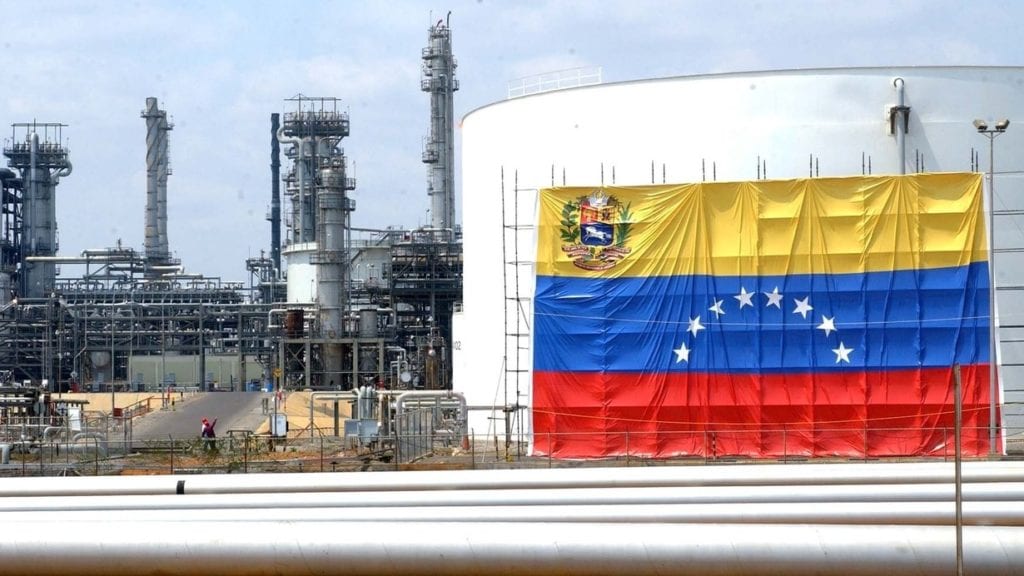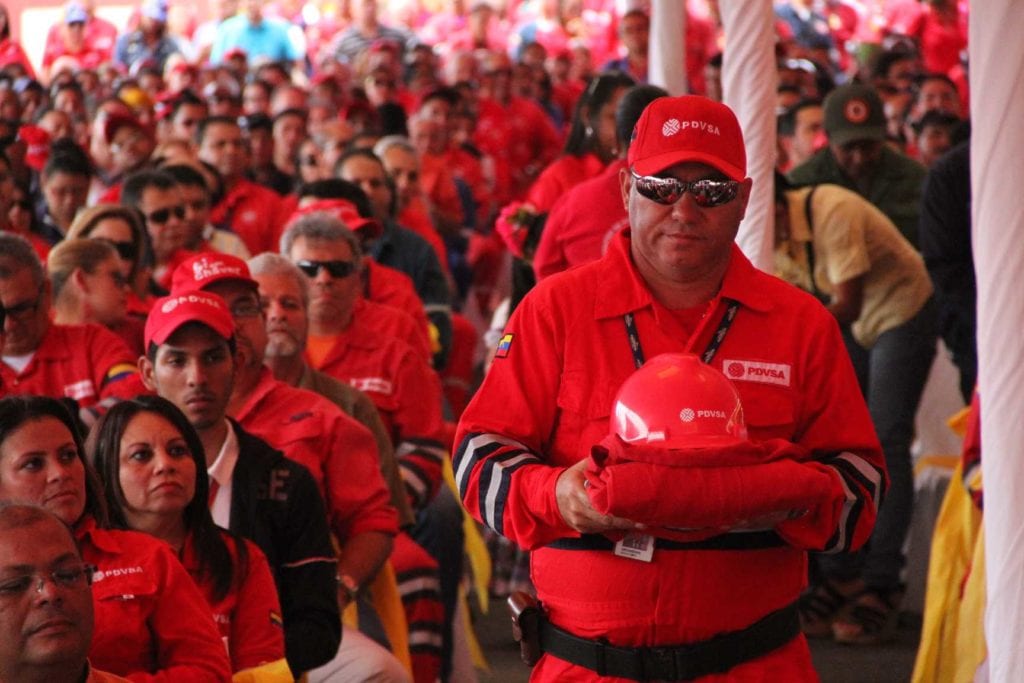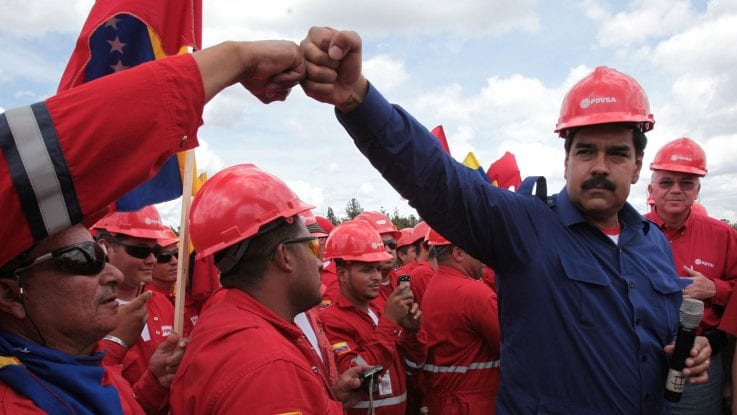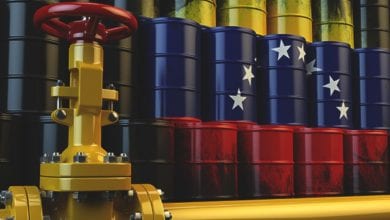By the end of May, oil production in Venezuela fell to a minimum durnig 75 years, and Washington’s sanctions have scared off most global buyers. Why is the Venezuelan state oil and gas company forced to close deposits? How does the Bolivarian Republic intend to deal with the energy crisis that the Latin American country has plunged into?
Venezuela is the country with the largest reserves of crude oil, but the US President Donald Trump gradually managed to “strangle” the oil and gas sector of the Latin American state through sanctions. According to the “Bloomberg” news agency, in early June, the Venezuelan oil production fell to a 75-year low. According to official data, Venezuelan state-owned oil and gas company “PDVSA” has lowered its production forecasts to 374 thousand bpd as of June 10. It is worth noting that this level was last registered in 1945.

On May 14, the Venezuelan Foreign Minister Jorge Arreaza (Spanish – Jorge Alberto Arreaza Montserrat) stated that the United States was pursuing tankers that transport fuel to the Latin American country, which is a violation of international law. On May 17, the Deputy Foreign Minister of Iran Abbas Araghchi (Seyed Abbas Araghchi) called the ambassador of Switzerland, representing the US interests in the Islamic Republic, onto the carpet and warned the White House against such actions. In addition, the Iranian Foreign Minister Mohamad Yavad Zarif sent a letter to the UN General Secretary António Guterres (Port. – António Manuel de Oliveira Guterres), in which he noted that the US administration should respect the provisions of international law, in particular freedom of navigation.
On May 20, the American newspaper “The Wall Street Journal”, citing sources in the Trump administration, announced the intention of the US government to impose sanctions, as well as apply other restrictive measures against Iran in connection with the supply of fuel to the Bolivarian Republic. After this information, obviously confirmed through military channels, Iranian tankers with oil products for the Latin American country began to accompany the vessels of the Navy of Venezuela.
To date, Washington’s sanctions have managed to scare off most of the world’s buyers from Venezuelan oil, which has led to an excess of reserves and the closure of deposits in the Latin American country. According to the official estimate of the “PDVSA”, production was 57% lower than previously planned. In addition, this volume, taking into account the performance of oil wells, also differs sharply from the forecast of production of 550 thousand bpd, which the Venezuelan state oil and gas company informed the OPEC (Organization of Petroleum Exporting Countries) in May.

Based on the “PDVSA” indicators for production published by “Bloomberg”, about 1/3 of Venezuelan oil fields produced 0 barrels in May and more than 10% – less than 500 bpd. By the way, most of the closed fields are joint ventures of the Venezuelan state oil and gas company “PDVSA” and foreign partners: the Cuban company “Cupet”, the Angolan “Sonangol” and the Chinese “CNPC”. Today, the “PDVSA” has to close deposits due to lack of customers, low prices, and lack of investment and staff. According to “Baker Hughes”, US oilfield Services Company, the number of oil drilling rigs in Venezuela dropped to one in May. Another drilling rig works to produce gas.
According to various international media reports, the White House administration is preparing to introduce a new “package” of sanctions against more than 40 vessels transporting oil from the Bolivarian Republic. Future sanctions could affect 25 supertankers with a total capacity of up to 2 million barrels of oil, as well as 17 smaller vessels. By the way, without waiting for the imposition of sanctions, the Brazilian state oil and gas company “Petrobras” refused to hire tankers that called at Venezuelan ports over the past year. Currently, ships are returning from Venezuela. According to the official statement of “Petrobras”, the company intends to explain to its suppliers that it will not accept offers from ships that operated in the Bolivarian Republic during the sanctions period (12 months).
On June 1, 2020, the Venezuelan government introduced a new system of subsidizing automobile fuel, which provoked queues for gasoline, in which the residents of the Bolivarian Republic were forced to stand for several days. Under the terms of the new program, car owners can now purchase 120 liters of fuel at a price of 2.5 cents per car. If this limit is exceeded, the price of fuel increases to 50 cents. At the same time, about 200 Venezuelan gas stations were able to obtain licenses allowing them to work with foreign fuel companies. Such gas stations were able to sell gas at high prices and without any restrictions. Thus, due to this measure, wealthy citizens will be able to save time by paying for fuel in any currency. Nevertheless, the increase in the price of gasoline has already caused very serious discontent among citizens of the Latin American country.

Iran and Mexico have already expressed their readiness to lend a helping hand to Venezuela in the current conditions. The Iranian Foreign Ministry spokesman Abbas Mousavi said Tehran is ready to send more tankers if Caracas requests a new supply. In turn, the Mexican President Andres Manuel López Obrador emphasized that Mexico is also ready to sell crude oil to Venezuela if it needs it. According to Lopez Obrador, no one has the right to oppress others, and Mexico is an independent, sovereign country that does not interfere in the policies of other countries. However, Mexican companies may face the US sanctions if they decide to help Venezuela. Recently, Washington has tightened sanctions around Caracas, especially after the first of five Iranian tankers carrying fuel for the Bolivarian Republic arrived in a Latin American country.
To date, the situation with “black gold” has reached the point where Venezuela is entering an era of acute fuel crisis. Local refineries cannot produce enough gasoline and diesel to meet the needs of the domestic market. Nicolas Maduro (Spanish – Nicolás Maduro Moros) is trying to solve the problem and increase imports, but it seems that there are not many who want it in this direction because of sanctions, and he could expect a fiasco.


